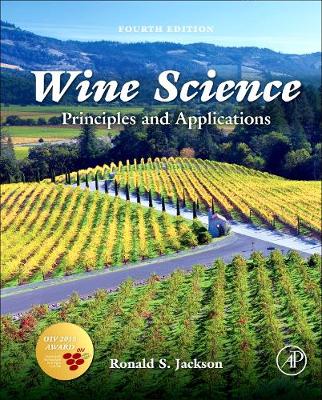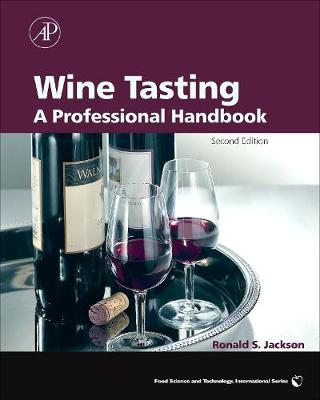Food Science and Technology
2 total works
Wine Science, Fourth Edition, covers the three pillars of wine science: grape culture, wine production, and sensory evaluation. It discusses grape anatomy, physiology and evolution, wine geography, wine and health, and the scientific basis of food and wine combinations. It also covers topics not found in other enology or viticulture texts, including details on cork and oak, specialized wine making procedures, and historical origins of procedures.
New to this edition are expanded coverage on micro-oxidation and the cool prefermentative maceration of red grapes; the nature of the weak fixation of aromatic compounds in wine - and the significance of their release upon bottle opening; new insights into flavor modification post bottle; the shelf-life of wine as part of wine aging; and winery wastewater management. Updated topics include precision viticulture, including GPS potentialities, organic matter in soil, grapevine pests and disease, and the history of wine production technology.
This book is a valuable resource for grape growers, fermentation technologists; students of enology and viticulture, enologists, and viticulturalists.
New to this edition are expanded coverage on micro-oxidation and the cool prefermentative maceration of red grapes; the nature of the weak fixation of aromatic compounds in wine - and the significance of their release upon bottle opening; new insights into flavor modification post bottle; the shelf-life of wine as part of wine aging; and winery wastewater management. Updated topics include precision viticulture, including GPS potentialities, organic matter in soil, grapevine pests and disease, and the history of wine production technology.
This book is a valuable resource for grape growers, fermentation technologists; students of enology and viticulture, enologists, and viticulturalists.
Wine Tasting: A Professional Handbook is an essential guide for any professional or serious connoisseur seeking to understand both the theory and practice of wine tasting. From techniques for assessing wine properties and quality, including physiological, psychological, and physicochemical sensory evaluation, to the latest information on types of wine, the author guides the reader to a clear and applicable understanding of the wine tasting process.
Including illustrative data and testing technique descriptions, Wine Tasting is for professional tasters, those who train tasters and those involved in designing wine tastings as well as the connoisseur seeking to maximize their perception and appreciation of wine.
Including illustrative data and testing technique descriptions, Wine Tasting is for professional tasters, those who train tasters and those involved in designing wine tastings as well as the connoisseur seeking to maximize their perception and appreciation of wine.

